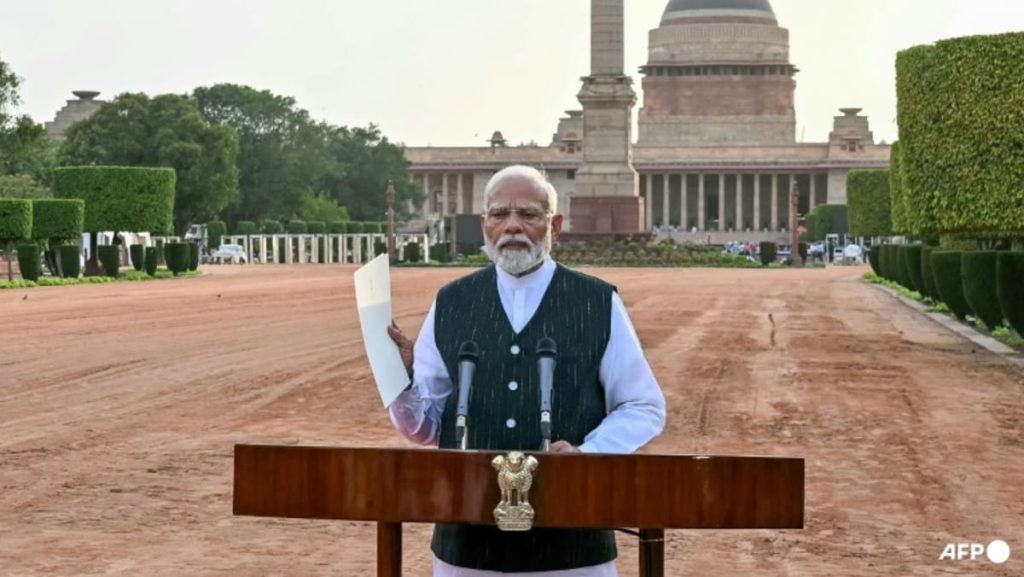Security was tight in New Delhi as regional leaders gathered for a ceremony where Rahul Gandhi was nominated to lead India’s opposition in parliament. Notable absences included leaders from China and Pakistan. Prime Minister Modi and Gandhi are the chief rivals in Indian politics, with Gandhi nearly doubling Congress party’s parliamentary numbers in the most recent election. Congress’s best result in a decade led to a unanimous vote to recommend Gandhi as the official opposition leader, a post that had been vacant since 2014.
Gandhi, the scion of a political dynasty in India, comes from a long line of former prime ministers. If elected as expected, he will take on the role of India’s official opposition leader in the new parliament. This post has been vacant for a decade due to Congress’s poor election results, but with the recent increase in seats, Gandhi is poised to take on the crucial role. Parliamentary regulations stipulate that the opposition leader must come from a party that commands at least 10 percent of the lawmakers in the lower house, a requirement that Congress now meets.
During the ceremony, Bangladeshi Prime Minister Sheikh Hasina and Sri Lankan President Ranil Wickremesinghe were among the regional leaders in attendance. However, China and Pakistan chose not to send high-level representatives to the event. Modi and Gandhi paid their respects at national memorials before the nomination, marking a significant moment in Indian politics. This nomination solidifies Gandhi’s position as the chief opposition figure in Indian politics, setting the stage for increased political rivalry and debate in the coming parliamentary sessions.
Gandhi’s nomination as the opposition leader comes at a crucial time for Indian politics, with Congress making significant gains in the recent election. His leadership will provide a strong voice of opposition to Modi’s government, offering alternative perspectives and policies to the ruling party. Gandhi’s background and political heritage make him a formidable leader, with a deep understanding of Indian politics and a network of supporters across the country. As India grapples with complex issues such as economic development, social inequality, and national security, Gandhi’s leadership will be instrumental in shaping the country’s future direction.
The ceremony in New Delhi highlighted the significance of Gandhi’s nomination as opposition leader, with regional leaders and officials in attendance. The absence of Chinese and Pakistani representatives underscored the geopolitical tensions in the region, as India seeks to assert itself on the global stage. Gandhi’s nomination represents a shift in Indian politics, with the young leader taking on a key role in challenging the ruling government’s policies and decisions. As parliament convenes with Gandhi at the helm of the opposition, the stage is set for a period of intense debate and political maneuvering.
In conclusion, Rahul Gandhi’s nomination as opposition leader in India represents a significant development in the country’s political landscape. With Congress making gains in the recent election, Gandhi’s leadership will provide a strong voice of opposition to Prime Minister Modi’s government. As the scion of a political dynasty, Gandhi brings a wealth of experience and knowledge to the role, ensuring that the opposition will be well-equipped to challenge the ruling party. The ceremony in New Delhi marked a pivotal moment in Indian politics, with regional leaders in attendance to witness Gandhi’s nomination. As parliament convenes with Gandhi as opposition leader, the stage is set for a period of intense political debate and scrutiny.













